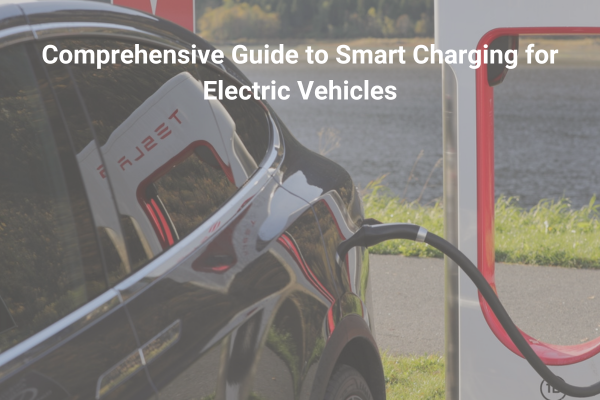Comprehensive Guide to Smart Charging for Electric Vehicles


In this blog, we will delve into the fascinating world of BMS and its crucial role in enhancing energy consumption in electric vehicles.
One crucial aspect of EVs is understanding their energy consumption, which directly impacts their driving range and overall efficiency. By comprehending the factors that influence energy consumption in electric vehicles, we can make informed decisions to optimize performance and maximize range.
The first factor affecting energy consumption in EVs is driving behavior. Just like with conventional cars, aggressive acceleration, frequent braking, and high-speed driving can significantly increase energy usage. By adopting a smoother and more efficient driving style, EV owners can reduce energy consumption and extend their driving range. Anticipating traffic conditions, utilizing regenerative braking, and maintaining a consistent speed are effective strategies for optimizing energy efficiency.
Another critical factor is the vehicle's aerodynamics. Wind resistance plays a significant role in energy consumption, particularly at higher speeds. Streamlined designs, improved aerodynamics, and features like aerodynamic wheel covers and underbody panels help reduce drag and enhance energy efficiency. Manufacturers strive to optimize the aerodynamic profile of EVs to minimize energy loss due to air resistance.
Tire selection and maintenance also influence energy consumption. Low-rolling resistance tires are designed to reduce friction and improve efficiency. Proper tire inflation and regular maintenance ensure optimal performance and minimize energy loss through rolling resistance. By choosing the right tires and keeping them properly inflated, EV owners can improve their vehicle's energy efficiency.
The efficient use of auxiliary systems and accessories is another aspect to consider. Features like air conditioning, heating, and entertainment systems consume additional energy. By using these systems judiciously and opting for energy-efficient options, EV owners can minimize the impact on overall energy consumption.
Battery management is a crucial aspect of energy consumption in EVs. The Battery Management System (BMS) plays a pivotal role in monitoring and optimizing the performance of the battery pack. It ensures efficient charging and discharging, maintains appropriate temperature levels, and prevents overcharging or deep discharging that can impact battery health and energy efficiency.
Additionally, external factors such as weather conditions and terrain can influence energy consumption. Cold weather and extreme temperatures can affect battery performance and reduce driving range. Hilly terrains or rough roads might require more power to overcome resistance, resulting in higher energy consumption.
It's worth noting that advancements in technology and vehicle design continually improve energy efficiency in electric vehicles. More efficient power electronics, regenerative braking systems, lightweight materials, and improved battery technologies all contribute to enhanced energy consumption and extended driving ranges.
Understanding and managing energy consumption is crucial for EV owners, enabling them to make the most of their vehicles' capabilities. By adopting efficient driving habits, optimizing vehicle aerodynamics, maintaining tires, using auxiliary systems wisely, and leveraging advanced battery management systems, drivers can maximize their EVs' range and minimize their environmental impact.
One critical component that plays a vital role in optimizing energy consumption in EVs is the Battery Management System (BMS). The BMS is responsible for monitoring and controlling various aspects of the battery pack, ensuring efficient energy utilization and enhancing the overall performance of electric vehicles.
One of the key functions of the BMS is state-of-charge management. It accurately measures the battery's state of charge, providing information about the available energy. This information enables drivers to plan their trips effectively and ensures that the battery is not overcharged or discharged beyond safe limits, thus maximizing energy utilization and extending the driving range.
The BMS also implements depth of discharge limits, which prevent the battery from being fully depleted. By setting appropriate discharge thresholds, the BMS ensures that a certain amount of charge remains in the battery at all times. This not only prevents damage to the battery but also improves its lifespan and overall performance.
Managing charge and discharge rates is another crucial aspect of energy consumption optimization. The BMS controls the flow of electricity into and out of the battery pack, regulating the charging and discharging processes. By controlling the current and voltage levels, the BMS ensures efficient energy transfer, minimizing energy losses and maximizing charging efficiency.
Cell balancing is an essential function of the BMS that enhances energy consumption in EVs. Battery cells in a pack may have slightly different capacities or charge-discharge characteristics, leading to imbalances. The BMS monitors each cell and redistributes the charge, ensuring that all cells are uniformly charged and discharged. This balancing prevents overcharging of certain cells, which can degrade the battery and reduce its overall energy efficiency.
Another aspect of energy consumption optimization is thermal management. The BMS actively monitors and controls the temperature of the battery pack. By maintaining the battery within the optimal temperature range, the BMS ensures efficient energy transfer and prevents overheating or excessive cooling, which can negatively impact the battery's performance and longevity.
In conclusion, the Battery Management System (BMS) is a critical component that drives efficiency and optimizes energy consumption in electric vehicles. With its various functions and capabilities, the BMS ensures that the battery operates at its full potential, maximizing the driving range and overall performance of electric vehicles.
Whether you are an electric vehicle manufacturer or an individual EV owner, cleanenergyev.com is here to meet your BMS needs. Our reliable and robust BMS solutions are tailored to your specific requirements, ensuring seamless integration and superior performance.